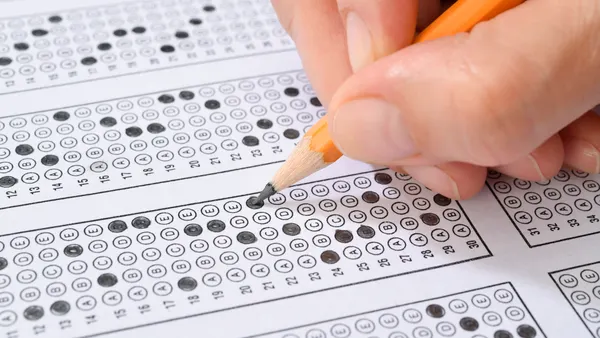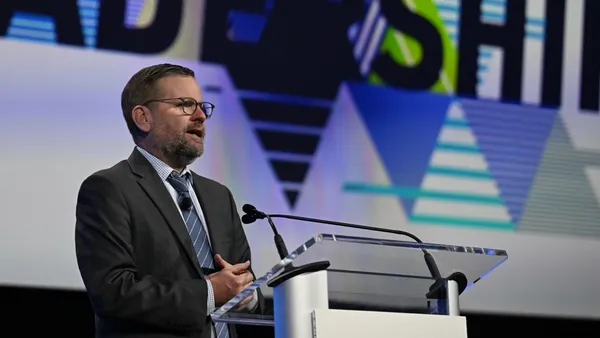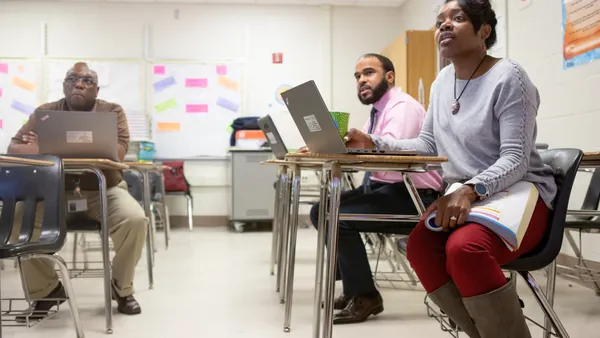Dive Brief:
- The end of E-rate eligibility for Wi-Fi hotspots came one step closer Thursday as the Senate voted 50-38 along party lines to overturn a 2024 expansion of the program overseen by the Federal Communications Commission.
- A similar House resolution was introduced in February to strike down the recent inclusion of Wi-Fi hotspots in the E-rate program, which has helped connect schools and libraries to affordable telecommunications services for the last 29 years.
- School districts have shown high demand for using E-rate funds to purchase Wi-Fi hotspots during fiscal year 2025, the first year for which the devices were eligible.
Dive Insight:
In fiscal year 2025, schools and districts requested a total of $27.5 million for Wi-Fi hotspots alone. The devices are often used to help students who don’t have home internet access complete homework assignments that require digital connections.
The FCC’s decision to expand E-rate to include hotspots followed the expiration of the Emergency Connectivity Fund established by the American Rescue Plan Act of 2021. The pandemic-era fund allocated $123 million to the FCC to purchase hotspots for schools and libraries.
Both Senate and House measures were introduced by Republicans who say the FCC’s partisan move under the Biden administration to expand the E-rate program was overreach under the federal law that defined the Universal Service Fund’s E-rate program as intentionally providing discounts for broadband services only to “school classrooms” and libraries.
Sen. Ted Cruz, R-Texas, introduced the resolution of disapproval in January under the Congressional Review Act, which gives federal lawmakers the authority to nullify a federal regulation. Cruz said in a January statement that the FCC regulation expanding E-rate “violates federal law, creates major risks for kids’ online safety, harms parental rights, and will increase taxes on working families.”
“Every parent of a young child or teenager either worries about, or knows first-hand, the real dangers of the internet,” Cruz said. “The government shouldn’t be complicit in harming students or impeding parents’ ability to decide what their kids see by subsidizing unsupervised access to inappropriate content.”
Before this week’s vote, several organizations representing school superintendents, K-12 business officials, rural educators, transportation providers and educational service agencies sent a letter on May 6 to Senate Majority Leader John Thune, R-S.D., urging him to vote against the resolution.
The letter noted that nearly 20,000 schools and libraries are applying for several hundred thousand hotspots nationwide through the E-rate program. If passed, the education groups wrote, the resolution would “prevent millions of students and library patrons” from gaining internet access.
“We strongly disagree with the argument that allowing students and adults to access hotspots on buses or at home opens the door to them accessing inappropriate content online,” the letter said. “The rules adopted by the FCC require that all Wi-Fi hotspots include blocking and filtering of inappropriate material. Thus, any claim that providing home Internet access through these hotspots exposes children to pornography and other inappropriate content are completely untrue.”
Hotspots particularly benefit low-income and rural students and educators who need internet access at home to complete homework assignments, the letter said. The groups added that passing such a resolution through the Congressional Review Act will prevent the FCC from ever approving an expansion of E-rate to include hotspots again.
With the end of the one-time influx of federal pandemic-era funds, a Consortium for School Networking survey released earlier this week found that 14% of district ed tech leaders said initiatives to fund broadband access off school campuses were at risk of losing future sustainable funding.
That same CoSN survey also revealed that most school districts are deeply concerned about the future of the E-rate program as a whole, given that the U.S. Supreme Court is expected to decide in the coming months whether the program’s funding mechanism is unconstitutional. Some 74% of district respondents told CoSN that should the justices strike down E-rate in FCC v. Consumers’ Research, the decision would have “catastrophic” or “major” effects for schools.













